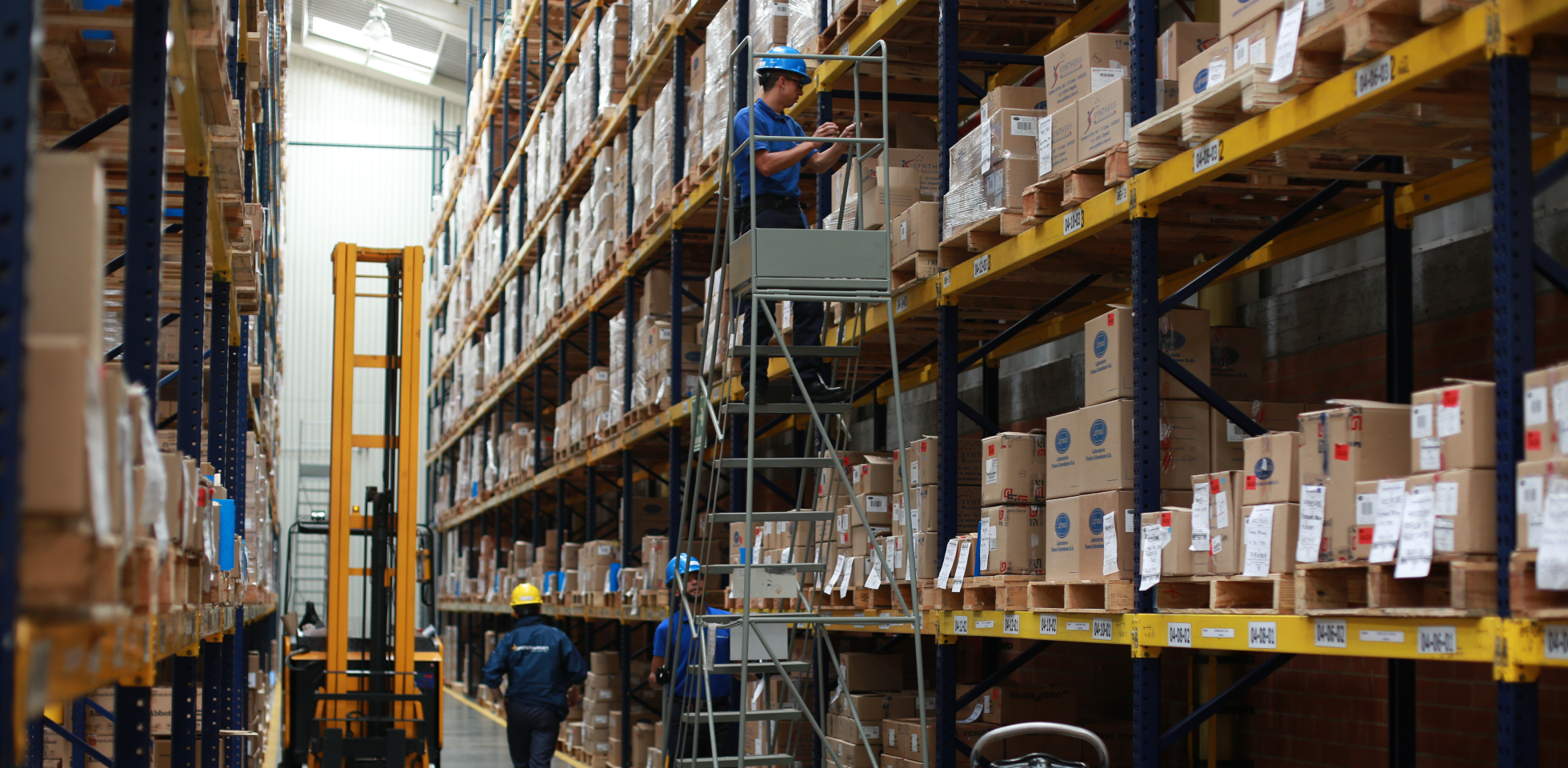Companies are always looking for competitive advantages they can offer their clients to meet their needs more efficiently. They wish to save space, time, and money as well as keep their inventory low while adapting to the ever-changing purchasing behavior of their clients.
The variety of value-added services offered by logistics specialists for the handling of products and for processes before, during, and after certain activities in the transportation and storage of goods, enables a comprehensive optimization of the whole supply chain so we can meet the standards and regulations of different industries, helping manufacturing companies maintain their competitiveness in the market.
Furthermore, as seen next, these value services make a contribution to quality control through activities such as packaging, labeling, or dunnage that can be incorporated at the time of pick-up at the warehouse and before they are distributed to the markets.
Hiring value-added services in the last section of the supply chain lets manufacturers meet all the requirements related to quality guarantee and product finishing as promised to their customers. This results in valuable time and money savings that can be steered to their core business of developing new products or opening new markets and income pipelines.
In this manner, value-added services contribute to the long-term optimization of logistics’ results as part of a smart logistics strategy to maintain the competitiveness of manufacturing companies.
The following are some value-added services specialized logistics companies may offer their customers:
- Tailoring: consists of performing the final modifications to the product as per the customer’s or final user’s specifications. This service is used mainly to customize slow-moving or promoted products, thus helping get rid of obsolete stock.
- Kitting: Carried out when two or more articles are packaged together according to the characteristics specified by the client. This service is also used to insert ads, promotional items, or samples to orders.
- Packaging: is much more than placing products in boxes; packaging includes the documentation and classification. Currently, packaging is almost as important as the product it protects and must be as efficient as possible in terms of space so we can get the best freight fees.
- Labeling: besides placing the mandatory stickers for parcel tracking, hiring this service also means adding brand labels, country of origin, barcodes, or customized items. Labels can be applied to individual pieces, boxes, or pallets.
- Dunnage: consists of handling the containers that protect the product from vibrations or hits during their transportation. This service is used mainly for international shipment (by land, air, or sea) and is supplemented by placing customs stamps.
- Heavy Loads and Palletizing: consist of hiring pallets and forklifts to pick up tons of materials. It is very useful when the company does not have experienced operators who can perform the task safely.
- Replacement: this service covers changes in the order or when customers wish to adjust the mix of products. Some logistics companies let customers make this kind of modifications in any phase of the supply chain.
- Reverse Logistics: includes merchandise returns, managing customers’ refunds, recovering and recycling dunnage and hazardous materials, and managing excess inventory.
- Product refurbishing: consists of collecting items returned by customers, or those with minor damage, and sending them for refurbishing so they can be resold at a lower price. They cannot be logged as new products due to quality standards, but they may be used for other businesses.
- Managing suppliers’ inventories: it consists of managing the inventory of clients in consignment from different suppliers and giving the client the necessary visibility, regardless of the location.
Even when some value-added services may be included in the daily manufacturing line, it is more efficient and functional to integrate them to the supply chain via a qualified external supplier that helps deliver clients just what they ordered.
By hiring these services from a logistics company, customers can obtain benefits that affect their growth and profitability, for example:
- Fulfilling orders with precision. Thanks to validations carried out in advance by the staff tasked with this activity, mistakes in shipments and deliveries are greatly reduced.
- Savings in Labor. Due to the automation of specialized logistics companies, customers can focus the efforts of their staff to activities exclusively related to their core business.
- Decrease in transport costs. When a sole supplier manages several value-added services, there are substantial financial savings by avoiding product transport.
- Stock optimization. Services such as labeling or price marking expedite the product classification process, placement on shelves, and make re-supply more efficient.
- Offer extension. It allows companies to offer clients more product options and promotions, like combos or kits.
- Customization and configuration of products. Clients can choose how they want their products, for example with a logo or inside a special packaging. To avoid lost sales and obsolete stock, the current trend is to delay the customization or special configuration of the product until the last stage of the supply chain.
- Process optimization. Specialized logistics companies have vast experience in handling products from diverse sectors, and thus, they can offer suggestions about the processes and best practices that ensure a continuous improvement of packaging and components.
Even when value-added services where not in high demand before, the ever-changing needs of clients have forced companies into adopting and adapting new profitable solutions to meet those needs; therefore, in upcoming years, it may be possible that we will be creating new opportunities and shunning some of the ones we currently use.
Maybe incorporating these types of services is a challenge for your business, but logistics companies like Solistica can become strategic partners for you because they offer you the necessary resources and flexibility to support the adapting process and the efficient delivery of products that meet the requirements of your clients and sector.
 *This blog was originally published on December 20 2018 and modified on April 18 2022.
*This blog was originally published on December 20 2018 and modified on April 18 2022.






